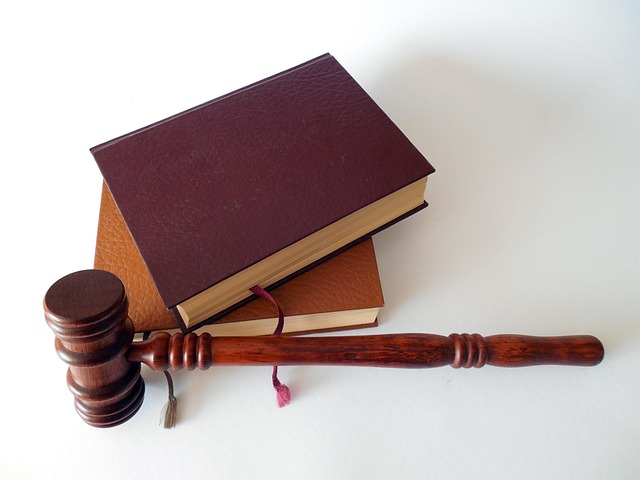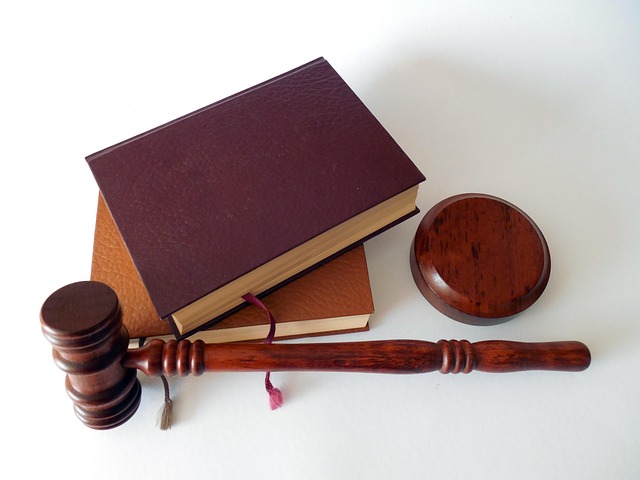Gaining comprehensive understanding of criminal proceedings expertise is pivotal for crafting robust defense strategies. Lawyers leverage their knowledge of legal processes, from arrest to sentencing, to identify procedural gaps, challenge evidence, and build persuasive arguments. This mastery of fundamentals enhances client defenses, securing more favorable outcomes while ensuring fairness, ethical conduct, and advocacy within the complex criminal justice system. Effective communication and strategic evidence analysis further strengthen these defense strategies.
In the intricate world of criminal defense, navigating complex legal terrain is paramount. This article delves into the critical aspects of defending clients, from understanding criminal proceedings and leveraging legal expertise to building robust defense strategies. We explore effective communication techniques for building trust with clients, evidence-uncovering methods to challenge prosecution cases, mastery of legal procedures, ethical considerations, and advocacy within the criminal justice system. Arm yourself with this expertise to ensure fairness and protect your client’s rights in every step of the process.
- Understanding Criminal Proceedings: A Foundation for Defense
- The Role of Legal Expertise in Building a Solid Defense Strategy
- Effective Communication: Establishing Trust with Clients
- Uncovering Evidence: Techniques to Challenge the Prosecution's Case
- Navigating Legal Procedures: Ensuring Fairness and Compliance
- Ethical Considerations and Advocacy in Criminal Defense
Understanding Criminal Proceedings: A Foundation for Defense

Understanding the intricacies of criminal proceedings is a cornerstone in building a robust defense strategy for clients. Criminal defense attorneys must possess a deep understanding of the legal process, from the initial arrest to trial and sentencing. This expertise involves navigating complex laws, regulations, and court procedures, ensuring that every step taken during the case adheres to procedural requirements. By grasping the nuances of criminal proceedings, lawyers can identify potential loopholes, challenge evidence, and construct persuasive arguments on behalf of their clients.
Mastering this foundation enables attorneys to provide effective representation, protecting their clients’ rights and interests. It empowers them to make informed decisions, craft strategic defenses, and communicate complex legal concepts coherently to both the judge and jury. Ultimately, this knowledge translates into a stronger case for the defendant, potentially leading to more favorable outcomes.
The Role of Legal Expertise in Building a Solid Defense Strategy

In the intricate landscape of criminal defense, legal expertise plays a pivotal role in crafting a robust strategy to counter complex criminal proceedings. It is the cornerstone upon which a solid defense is built, enabling attorneys to navigate the intricacies of the law and protect their clients’ rights. This expertise involves an in-depth understanding of various legal doctrines, procedural rules, and constitutional protections.
Attorneys leverage their knowledge to interpret evidence, challenge prosecution claims, and construct persuasive arguments. They must be adept at analyzing case law and previous rulings to find relevant precedents that support their client’s innocence or mitigate the charges. This strategic approach, grounded in legal expertise, is essential for presenting a compelling defense, ensuring a fair trial, and ultimately advocating for the best possible outcome in criminal cases.
Effective Communication: Establishing Trust with Clients

In the high-stakes environment of criminal defense, effective communication is a cornerstone of successful representation. Building trust with clients is paramount; it ensures a collaborative relationship where clients feel heard and understood. Lawyers must possess the expertise to translate complex legal jargon into comprehensible language, fostering an atmosphere of transparency and confidence. This skill set is vital in navigating the often intimidating nature of criminal proceedings.
Establishing trust involves active listening, empathy, and clear, consistent communication. Criminal defense attorneys who demonstrate these qualities become not just legal advocates but supportive allies. Clients are more likely to share crucial information and actively participate in their defense when they trust their lawyer’s ability to communicate both legally and emotionally. This dynamic is essential for crafting a robust defense strategy and achieving the best possible outcome.
Uncovering Evidence: Techniques to Challenge the Prosecution's Case

In criminal defense, uncovering evidence is a strategic art that requires a deep understanding of legal procedures and an insightful approach. Defense attorneys must scrutinize every aspect of the case presented by the prosecution. This involves challenging the admissibility of evidence, examining witness testimonies for inconsistencies, and delving into alternative explanations or motives. With their extensive knowledge of criminal proceedings, experts in this field can identify gaps in the prosecution’s narrative, potentially exposing weaknesses that may sway the outcome of the case.
Techniques such as cross-examination, expert testimony, and forensic analysis play a pivotal role in this process. Skilled defense lawyers use these tools to undermine the credibility of witness statements, present contradictory evidence, or highlight procedural errors. By employing these strategies, they aim to create reasonable doubt in the minds of jurors or judges, ultimately defending their clients with unwavering expertise.
Navigating Legal Procedures: Ensuring Fairness and Compliance

In the intricate landscape of criminal defense, navigating legal procedures is a cornerstone of ensuring fairness and compliance for clients. Skilled attorneys leverage their deep understanding of criminal proceedings to guide clients through each step, from initial investigations to trials. They meticulously examine evidence, challenge procedural irregularities, and craft strategic defenses that protect their clients’ rights.
The expertise in criminal proceedings isn’t merely about knowing the rules; it’s about applying them with precision and passion. By staying abreast of legal developments, advocating aggressively on behalf of clients, and maintaining unwavering ethical standards, defense attorneys uphold the integrity of the system. This ensures that justice is not only pursued but also served equitably, protecting the rights and interests of every individual involved.
Ethical Considerations and Advocacy in Criminal Defense

In the realm of criminal defense, ethical considerations are paramount. Lawyers must advocate for their clients with unwavering integrity and professionalism. This includes ensuring confidentiality, upholding the rule of law, and never exploiting or misrepresenting evidence. The goal is to provide zealous advocacy within the bounds of ethics, protecting the rights and interests of the accused throughout criminal proceedings expertise.
Advocates play a crucial role in navigating complex legal landscapes. They must be well-versed in procedural rules, constitutional rights, and potential defenses. Effective advocacy involves presenting compelling arguments, challenging evidence, and providing strategic guidance to clients facing serious charges. The balance between aggressive representation and ethical conduct is essential for achieving just outcomes in criminal defense cases.






